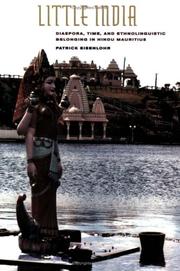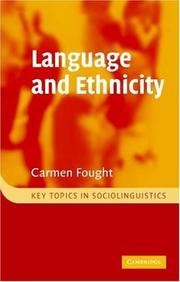| Listing 1 - 3 of 3 |
Sort by
|

ISBN: 0292713460 0292795629 Year: 2006 Publisher: University of Texas Press
Abstract | Keywords | Export | Availability | Bookmark
 Loading...
Loading...Choose an application
- Reference Manager
- EndNote
- RefWorks (Direct export to RefWorks)
Rancheros hold a distinct place in the culture and social hierarchy of Mexico, falling between the indigenous (Indian) rural Mexicans and the more educated city-dwelling Mexicans. In addition to making up an estimated twenty percent of the population of Mexico, rancheros may comprise the majority of Mexican immigrants to the United States. Although often mestizo (mixed race), rancheros generally identify as non-indigenous, and many identify primarily with the Spanish side of their heritage. They are active seekers of opportunity, and hence very mobile. Rancheros emphasize progress and a self-assertive individualism that contrasts starkly with the common portrayal of rural Mexicans as communal and publicly deferential to social superiors. Marcia Farr studied, over the course of fifteen years, a transnational community of Mexican ranchero families living both in Chicago and in their village-of-origin in Michoacán, Mexico. For this ethnolinguistic portrait, she focuses on three culturally salient styles of speaking that characterize rancheros: franqueza (candid, frank speech); respeto (respectful speech); and relajo (humorous, disruptive language that allows artful verbal critique of the social order maintained through respeto). She studies the construction of local identity through a community's daily talk, and provides the first book-length examination of language and identity in transnational Mexicans. In addition, Farr includes information on the history of rancheros in Mexico, available for the first time in English, as well as an analysis of the racial discourse of rancheros within the context of the history of race and ethnicity in Mexico and the United States. This work provides groundbreaking insight into the lives of rancheros, particularly as seen from their own perspectives.
Anthropological linguistics --- Mexican Americans --- Spanish language --- Group identity. --- Languages. --- Social aspects --- Collective identity --- Community identity --- Cultural identity --- Social identity --- Identity (Psychology) --- Social psychology --- Collective memory --- Castilian language --- Romance languages --- Chicanos --- Hispanos --- Ethnology --- Anthropo-linguistics --- Ethnolinguistics --- Language and ethnicity --- Linguistic anthropology --- Linguistics and anthropology --- Anthropology --- Language and culture --- Linguistics

ISBN: 0520939964 9786612358586 1282358588 143370000X 9780520939967 9780520248809 0520248805 9781433700002 9780520248793 0520248791 6612358580 9781282358584 Year: 2006 Publisher: University of California Press Berkeley
Abstract | Keywords | Export | Availability | Bookmark
 Loading...
Loading...Choose an application
- Reference Manager
- EndNote
- RefWorks (Direct export to RefWorks)
Little India is a rich historical and ethnographic examination of a fascinating example of linguistic plurality on the island of Mauritius, where more than two-thirds of the population is of Indian ancestry. Patrick Eisenlohr's groundbreaking study focuses on the formation of diaspora as mediated through the cultural phenomenon of Indian ancestral languages-principally Hindi, which is used primarily in religious contexts. Eisenlohr emphasizes the variety of cultural practices that construct and transform boundaries in communities in diaspora and illustrates different modes of experiencing the temporal relationships between diaspora and homeland.
Hindus --- Anthropological linguistics --- Hindoos --- Religious adherents --- Anthropo-linguistics --- Ethnolinguistics --- Language and ethnicity --- Linguistic anthropology --- Linguistics and anthropology --- Anthropology --- Language and culture --- Linguistics --- Diaspora, Hindu --- East Indian diaspora --- Human geography --- Diaspora. --- Ethnic identity. --- Diaspora --- Migrations --- Mauritius --- Île Maurice --- Maurice --- Drontens ö --- Mōrishasu --- Mavrikiĭ --- Republic of Mauritius --- Môriśasa --- Mārīśasa --- Mauritious --- République de Maurice --- Repiblik Moris --- モーリシャス --- Mauricio --- Estado de Mauricio --- מאוריציוס --- Maʼuritsyus --- Île de France --- Ethnic relations. --- Anthropological linguistics. --- Anthropological linguistics - Mauritius. --- Hindu diaspora. --- Hindus. --- Indian religions --- Ethnology. Cultural anthropology --- Indic languages --- ancestral languages. --- anthropology. --- cultural practices. --- diaspora communities. --- diaspora. --- ethnographers. --- ethnography. --- ethnolinguistics. --- ethnolinguists. --- generational. --- hindi. --- hindusim. --- historians. --- historical perspective. --- homeland. --- india. --- indian ancestry. --- language and culture. --- linguistic connection. --- linguistics. --- linguists. --- lingustic plurality. --- mauritius. --- nonfiction. --- politics. --- religious language use. --- religious practices. --- shared language.

ISBN: 9780521612913 0521612918 0521848431 9780521848435 9780511791215 0511245955 9780511245954 9780511246647 0511246641 0511245246 9780511245244 0511791216 9780511318993 0511318995 9780511244490 0511244495 1280702478 9781280702471 9786610702473 6610702470 110716463X Year: 2006 Publisher: Cambridge Cambridge University Press
Abstract | Keywords | Export | Availability | Bookmark
 Loading...
Loading...Choose an application
- Reference Manager
- EndNote
- RefWorks (Direct export to RefWorks)
What is ethnicity? Is there a 'white' way of speaking? Why do people sometimes borrow features of another ethnic group's language? Why do we sometimes hear an accent that isn't there? This lively overview, first published in 2006, reveals the fascinating relationship between language and ethnic identity, exploring the crucial role it plays in both revealing a speaker's ethnicity and helping to construct it. Drawing on research from a range of ethnic groups around the world, it shows how language contributes to the social and psychological processes involved in the formation of ethnic identity, exploring both the linguistic features of ethnic language varieties and also the ways in which language is used by different ethnic groups. Complete with discussion questions and a glossary, Language and Ethnicity will be welcomed by students and researchers in sociolinguistics, as well as anybody interested in ethnic issues, language and education, inter-ethnic communication, and the relationship between language and identity.
Antropologische linguïstiek --- Etniciteit --- Etnolinguïstiek --- Linguïstische antropologie --- Taal en culturele identiteit --- Antropologische linguïstiek. --- Etniciteit. --- Etnolinguïstiek. --- Linguïstische antropologie. --- Taal en culturele identiteit. --- Anthropological linguistics. --- Ethnicity. --- Sociolinguïstiek. --- Taal en cultuur. --- Anthropological linguistics --- Ethnicity --- #SBIB:309H518 --- #SBIB:316.8H16 --- #SBIB:39A6 --- Ethnic identity --- Group identity --- Cultural fusion --- Multiculturalism --- Cultural pluralism --- Anthropo-linguistics --- Ethnolinguistics --- Language and ethnicity --- Linguistic anthropology --- Linguistics and anthropology --- Anthropology --- Language and culture --- Linguistics --- Verbale communicatie: sociologie, antropologie, sociolinguistiek --- Welzijns- en sociale problemen: migranten, rassenrelaties --- Etniciteit / Migratiebeleid en -problemen --- Ethnology. Cultural anthropology --- Sociolinguistics --- Ethnische Identität. --- Ethnizität. --- Ethnolinguistik. --- Fremdsprachenlernen. --- Soziolinguistik. --- Sprache --- Sprache. --- Arts and Humanities --- Language & Linguistics
| Listing 1 - 3 of 3 |
Sort by
|

 Search
Search Feedback
Feedback About UniCat
About UniCat  Help
Help News
News